|
|||||||||||||||||
|---|---|---|---|---|---|---|---|---|---|---|---|---|---|---|---|---|---|
| MUSIC | MIXES | SIXX MIXX | INFO | PRESS | CHARTS | CONTACT | |||||||||||
When I put together these lists, I make a concerted effort to focus on music I really listened to and enjoyed. That may sound self-evident, like, what else would you base it on? But since I'm such a rabid consumer and fan of music criticism (and year-end lists in particular), I'm easily swayed by other voices, and my list threatens to become more about what I should like than what I did like. (This is compounded by how busy and lazy I am, meaning I usually finish my list in the last hours of the year, with all the other lists swimming in my head). But I am still compelled to try and set down a record of what really ended up on my stereo and in my headphones in a given year, regardless of any external pressures or factors, an attempt to balance What Everyone Thought was Important with an honest appraisal of music that gave me personal pleasure. So this year, for a time, I struggled with this number one. The surprise of Blackstar's January release, the shock of David Bowie's death just two days later, and the clear message of the album as an artist reckoning with his own impending demise were all almost overwhelming. The music was, like so much jazz, sometimes disturbing, and sometimes unbearably sad, and at times not so easy to listen to. But the sheer monumentality—the audacity, the genius!—to create art from your own dying, a swan song for an unequaled career, this all lodged the album immediately at the top spot on my working list, before I'd even been able to absorb the actual music. Of course it turned out that Bowie was not to be the only profound loss in 2016. From Prince to Carrie Fisher to (shudder) Donald Trump, the consensus is that this has been a terrible year of grief and defeat. I experienced my own shock and loss in June when my father died, words that still feel unreal and nonsensical to write. While his death was unexpected, looking back to the weeks before he passed, both me and my family now feel we see signs that he somehow knew his time was limited: a frenzy of activity at home and at work to complete projects and touch base with as many people as possible, and at the same time a sense of calm and acceptance in my last conversations with him. Who's to say, of course, but it's as if he made his last days about leaving the greatest mark he could, in his own way. Returning to Blackstar in the fog of anxiety and mourning after his death was sharp with pain, too real to be cathartic, just staring into the abyss, black and cold. How, then, in this cratered moonscape of a year, in the face of profound personal grief and cultural loss, to separate this music from the context? How to remove the songs from what they represent, from what has happened, to me and to all of us? The answer is, I won't. While it's positive, of course, to include "enjoyment" or "total plays on the stereo" as factors in a list such as this, I was reminded, listening to Blackstar again after spending the first Christmas without my dad, that art is not always only pleasant, and great art is sometimes the most devastating. Moreover, I will take this year and the music in it as a whole, as agonizing and harrowing as that may be, since that is the only way forward. Blackstar is, in a way, a true story, theatrical and conceptual, sometimes atonal and collapsing in on itself. (At its halfway point, the sprawling title track literally falls apart.) Blackstar is a soundtrack to life and death; that it is also groovy, wry, hypnotic and entrancing, is nothing short of miraculous. Oddly, I'm reminded of one of my (at the time) least favorite Bowie releases, 1997's Earthling, which seemed to tag along to the drum 'n' bass and electronica trends just as they weren't really edgy any more. However, in retrospect Earthling loses that whiff of faddishness, and the songs emerge, utilizing jungle's skittering rhythms and textures to propel tales of darkness ("Dead Man Walking") and despair ("The Last Thing You Should Do"), both titles that would be right at home here. Blackstar's majestic shortened and rerecorded version of two-year-old track "Sue" revives this frenetic double-time syncopated rhythm with rock intensity while imagining the narrator as the bringer of death, rather than the dying, and its placement at the center of the album is a reminder of the core theatricality. (I'm reminded of my 2011 #1 album, PJ Harvey's Let England Shake, also sung in character). Additionally, Bowie's collaborators on Blackstar include jazz saxophonist Donny McCaslin, known for an Aphex Twin cover or two, and that cacophonous tension infects the entire album, even the strutting and almost glam "Tis a Pity She Was a Whore." The great (and Party Ben favorite) Boards of Canada were also a reported inspiration for Blackstar, and while Pitchfork pointed out that Bowie himself can be credited as an inspiration for them (see Low's "Subterraneans"), that dark blend of nostalgia and foreboding is everywhere here as well. (And of course, there's "Lazarus"; see my notes on that in the Songs list below). Ten years ago, J Dilla's Donuts was unquestionably my album of the year, and that album shares with Blackstar a heartbreakingly uncanny similarity in its release date coming just three days before Dilla's death. It is also perhaps its closest antecedent in terms of process, as it was recorded mostly in the hospital. You can feel the awareness of death all around, and the music is suffused with nostalgia and now-clear messages of farewell. While Donuts' frenetic collection of micro-songs could not be more different from the extended tracks on Blackstar, there's an adventurous, jazzy spirit recognizable in both. Amazing, then, that Blackstar ends on another surprising note, the almost wistful "I Can't Give Everything Away," opening with unabashedly '80s synth pads and harmonica trills—I almost get a whiff of Supertramp's "Goodbye Stranger" in its plaintive chords. The repetition of the title seems to allow the phrase to contain all its various possible meanings, both coy and heartbreakingly generous: it's not possible to give everything away, because even with your dying breath, you'll still have more to give, and even when you're gone, your work and life will continue to provide; radiating, even with darkness, light.
And here, my friends, is light. In a year of hip hop renaissance, with towering and legendary artists returning from hiatus or revolutionizing their output (see below), how wonderful that the most exciting sound of the year came from a 24-year-old queer Haitian-Canadian producer still living with his mother. It's not fair or right to even call this hip hop, really, although in 2016 it is, and it isn't: iTunes calls it "Electronic" and yet the vocal guest list is a who's who of rap and pop stars from Vic Mensa to Craig David. For such a young artist, the album is maturely paced, with a couple 2-minute classic-soul interludes, just as stupendous as any other tracks on the album, especially the hypnotic "Bus Ride," which evokes the psyche-lounge of David Holmes' 1997 classic Let's Get Killed. But the jams, they are a-plenty, and what jams! "Together" is a "Groove is in the Heart" for 2016, a sung/rap collab that seems to coalesce everything that was (or could have been) great this year: positivity, unity and hope. "Bullets" brings on board a perfect muse for Kaytra's gauzier side, vocalist Little Dragon, for a haunting lamentation on violence. And let's not forget "Lite Spots," which I'll talk about below.
It was track 29, "Bye.," on J Dilla's Donuts, which first exposed me to the heavenly delayed arpeggios of the Isley Brothers' 1980 track "Don't Say Goodnight," wielded so effectively on a track that expands the original's meaning from a come-on to a plea. While both Donuts and house music are cleraly close to my heart, it never occured to me to combine them, and so when I heard British producer Vynehall's simple yet stunningly effective use of the same sample in 2014's "It's Just (House of Dupree)," I was thrilled and a little envious. The loop is so perfect and uplifting, perfectly pitched into three rising tones, I wished it could go on forever. Even so, Vynehall's full length debut that year Music for the Uninvited still took me somewhat by surprise, as it expressed a breadth of musicality and an almost symphonic approach to composition I was not expecting. It ended up at #9 on my best albums list. After two years, Vynehall reappeared early in 2016 with a stupendous one-off single, "Midnight on Rainbow Road" (see the Songs list below), which showcased an even greater maturity in his songwriting and production skills, but again, I was utterly unprepared for the glorious work to come. Rojus (Designed to Dance) is, nominally, a concept album, inspired by the mating rituals of birds of paradise, a seemingly simple premise that expands in meaning and depth the more you listen. The compositional complexity I appreciated on "Uninvited" has grown exponentially on Rojus, with layer upon layer of sonic texture and melody, a lush tropical jungle of sonic beauty. Similarly to "It's Just" in its reorienting of a J Dilla sample, track 2 "Saxony" seems to house-ify Flying Lotus, its cheeky retro choir's "oohs" evoking Lotus's breakout "Massage Sitaution." "Beau Sovereign" beckons and struts, with a repeated whisper of "Your love/That's what I want," shaking its, ahem, tail feathers. While the album functions best as a whole, "Blush" is a standout, its epic strings and swirling effects hypnotic and ecstatic, and its accompanying video (watch the linked birds of paradise video above first!) nearly its equal in sheer gorgeousness. Of course, Vynehall is making a point here, that our dancing and flashy clothes ("peacocking," anyone?) are not unique in the animal kingdom, sure. But he's also doing something more straightforward, and something more complex. First, I'd say there's something of a "tribute" in this album's nature, honoring the sheer beauty and ostentatiousness of these birds' displays, like Vynehall was just attempting to create something to approach the glory of nature. But I'm also fascinated by a connection made explicit on "It's Just," which opens with a sample of Willi Ninja from 1990's "Voguing: The Message." Like myself, Vynehall is a skinny white dude who turns out to be fascinated with voguing and the "ball" scene, which came into my consciousness with 1990's "Paris is Burning." By connecting the artifice-worshipping drag of the ball (with its overwhelmingly gay/queer participants) to the natural world of mating dances, Vynehall is saying something kind of radical about sexuality, I think. Moreover, with the glamorous 4/4 strut and bright, Vegas-y flash evident throughout Rojus, there's nothing I would love more than to see this album soundtrack a ball. Can you imagine? In a year where house music seemed to fall off the critical map entirely, and queer expression seems doomed to retreat, Rojus is a reminder of its glorious power.
While sister Beyoncé approached her opus on blackness in America with brash intensity, it turns out it's Solange's Seat at the Table, with its meditative blend of past and future funk, that feels the most like an album for the ages. The album doesn't run from sorrow, it dives right in, and in doing so feels like a warm embrace for those in pain. Track 2, "Weary," kicks off with a timeless vibe, a basic beat and simple piano line, but is joined by spacey video game tones and blips, placing the exhaustion of the lyrics firmly in 2016. "Cranes in the Sky" looks to a Marvin Gaye-style mournful beat as a backing track for its clear-eyed, honest confessional, about the ways we harm ourselves looking for solace from torment, and then soars with enlightenment and escape, the production again bringing us firmly to the present. Like Kaytranada's 99.9%, A Seat at the Table is wildly eclectic in its celebration of musical genres and historical styles, yet creates sounds and textures I've never heard before. There's something familiar about the vaguely '80s funk of "Don't You Wait," but the drums are strange, distorted, and synth pads swirl evocatively in the background. Much has been made of "Don't Touch My Hair," rightly, which more than any song perhaps in history seems to embody the term "quiet storm," so quiet and delicate and yet so fierce,. While Solange's voice is perfect as the centerpiece to this album, emotional and genuine, there was no more appropriate choice than Sampha to plead in the chorus, again and again, "What you say to me, what you say to me." Rich with history, family, noble confidence in resistance and soothing comfort for injuries sustained in the battle, this may be an album by and for black women, but it's an album all of us will need more than ever in the years ahead.
Pitchfork rightly called this album "a miracle that 2016 barely deserved," and every moment of its 16 songs feels that way. More so than just about any hip hop act, Tribe had been a symbol of a lost time of creativity in the genre since their last album in 1998, throughout the crunk oughties and more or less empty early oughty-teens. It's incredible, and a sign of the creative resurgence of hip hop, that their new album sounds so relevant and contemporary. Things kick off boldly with what feels like a signature Tribe beat and electric piano lick, and how welcome the sound of Q-Tip and Phife's voices, back again with the thoughtful brand of what Robert Christgau called "conscious black humanism," imaginations soaring into space. "We the People" may be the most inspiring call to arms since "Fight the Power," and "Dis Generation"'s wistful guitar chords are a perfect match to its intricate lyrical flow (including a shout out to Princess Leia—what a year, huh). These casual revolutionaries slipped in under the wire, with an album released just days after Trump's win, an album that shouldn't even be here, and made us remember we could get up again when we get knocked down, and take it from here. RIP Phife.
While Hyperdub is known for almost incomprehensibly frenetic and furutistic footwork releases, Jessy Lanza indulges without shame in '80s tropes like freestyle and twinkly synthy pop, like FKA Twigs fronting The Jets, or a reimagining of Madonna's first album, yet twists them subtly to her own ends."VV Violence"'s jittery backing beat is just a little too fast to be an actual '80s reference, I think, plus its weird hi hat tunings throw you off balance, giving the lovelorn lyrics impact. She confidently inhabits and inverts these classic tropes—a purr of "I just wanna impress you"—with layers of irony and knowingness, the music flirting both with glittering cliche and threatening to fall apart into glitched out computer errors at any second. Maintaining this tension is no mean feat, and like all great pop music, it allows you, begs you, to hum along, while hinting at great depths.
There's a distaste in our culture nowadays for directly addressing the political in art. Witness the furious backlash any actor or comedian gets when they make any public statement about, you know, the world or whatever, and music that talks too literally about current affairs is looked down on as cheap or gauche, unwisely abandoning any ability to be relevant beyond the next week or so. Into this troll-filled firing line charges the righteous warrior ANOHNI, with a new all-caps name, fiery electronic minimalism assisted by Oneohtrix Point Never and Hudson Mohawke, and a willingness to sing what seemed unsingable. "Drone Bomb Me" starts the album, a devastating lament from the point of view of a young girl who has lost her family to an unseen enemy, but whose cry for release from agony is universally recognizable. It's easy to overlook, with this lyrical power, that behind it is some powerful and forward-looking future bass. ANOHNI's voice seems more versatile and mature than ever, at times a delicate falsetto, other times richly soulful. She told Pitchfork that she was inspired by the political music of the '80s, and Hopelessness, ironically, gives me hope, reviving that forgotten spirit of fury at the overwhelming injustice of our world, joined with a rousing commitment to new forms of beauty and joy.
Gospel music is not going to be a touchstone for me, but former church performer .Paak brings the power of hymn-like confessionals to the cutting edge of R&B on Malibu. While the album was produced by a veritable army of greats from Kaytra to POMO to Madlib, it's .Paak's lyrical flow and the warm, lush tone that brings it all together. I suppose post-"Get Lucky" I shouldn't be surprised, but I'm still so happy that one of the hottest rappers in the world (who first got noticed on last year's Dr. Dre album Compton) feels confident enough to create the disco-riffic throwback "Am I Wrong." Similarly,"Come Down" evolves classic James Brown with its minimal drums and rhythm guitar. Like the other great hip hop albums on my list, Malibu seems to mine lost seams of precious material from the past, creating new forms.
While I've been resistant to much experimental ambient music in the past (with my conservative insistence on songs and structure and stuff), this year really seemed to throw open the gates to some spectacular work in the ambient field. While there were many good albums (see some below on my list from nonkeen, Kaitlyn Aurelia Smith, and Tim Hecker), it's Centres which emerged as my favorite this year. The Vancouver-based Craig works, apparently, mostly in variously altered and intermittently functional tape players, and as someone who still treasures my disintegrating old cassettes, I find the organic decay layered on top of the fuzzy drone here deeply affecting. While at times this 73-minute experience swirls like the snowy static of a distorted broadcast, it's held together by the gravitational pull of Craig's operatic voice, and what feels like real control over the chaotic forces at play. You'll have to give this album a real chunk of time, but the reward will be a moving and cathartic experience.
Norwegian artist Hval goes metaphor-wild on Blood Bitch, nodding at vampirism and menstruation, the moon and ritual sacrifice, but as the Quietus put it, the album is not a single story or easily reduced to a darkly romantic horror show, but instead a " palimpsest of ancient themes... constantly vibrating against each other... part of a porous palette." In summation: just a bunch of really cool, sometimes funny, sometimes disturbing songs, over haunting, often minimalist backdrops. 11 MMOTHS - Luneworks (Because) 12 Guy Andrews - Our Spaces (Houndstooth) 13 Horse Lords - Interventions (Northern Spy) 14 Frank Ocean - Blonde (Boys Don't Cry) 15 Nick Cave & the Bad Seeds - Skeleton Tree (Bad Seed) 16 Blood Orange - Freetown Sound (Domino) 17 Chance the Rapper - Coloring Book (mixtape) 18 DIIV - Is the Is Are (Captured Tracks) 19 Odd Nosdam - Sisters (Leaving) 20 Kaitlyn Aurelia Smith - Ears (Western Vinyl) 
Pitchfork put this track at #30 on their Best Songs list, but the dude assigned to write about it seemed like he wasn't super stoked on the assignment, snarkily calling the track's astute sampling a "business model" based on "stamping [Drake's] name on" something he likes. Now, not fair, Pitchfork; your top 29 is pretty full of big business-driven pop and hip hop, from what I can see. Moreover, I'm a firm believer in sampling, just as I'm a believer in mashups and bootleggery and culture jamming of all kinds, and the minute you put a upper-level income cutoff on the legitimacy of that process, you're a hypocrite. Now, admittedly, even though I'm employed by one of the biggest Drake-pushers in the world, I must admit to being totally out of the central flow of the pop culture river these days, so it's possible the ubiquity of "One Dance" and Drake Inc. is more annoying to those who are. I get it. But honestly, I heard this song a lot this year, and I never, ever got tired of it. In fact, the more I heard it, the more beguiling it became. Drake proved his infatuation with Jamie xx back in 2012 with what I thought was a well-intentioned but ultimately kind of crappy cover/reinterpretation of Jamie xx's brilliant rework of Gil Scott-Heron's version of "I'll Take Care of You." (To the aforementioned Pitchfork writer, mea culpa). But to my mind, "One Dance" is Drake finally successfully channeling Mr. xx, in the best possible way; the slowed down vocal and piano from the Crazy Cousins' mix of Kyla Reid becomes both more sexy and more melancholy at this speed, and the haunting chorus from Wizkid complete with afropop guitars sounds like the coolest, most obscure sample Jamie xx ever tracked down. Moreover, the melding of dancehall with, you know, sadness, is pretty much what "I Know There's Gonna Be (Good Times)" was all about. You cannot tell me that if Jamie xx put this out you wouldn't sing its praises! Now, will we look back on "One Dance," 20 years from now, and think, um, Ace of Base? Well, we'll all be in the TrumpCamps™, so who knows. But right now, this song is the Seinfeld of 2016: something that manages to be great and incomprehensibly popular, at the same time. Not that there's anything wrong with that.
There's something stupendous about how this song takes what could be a sassy retort--I mean, it's just hair, right?--and makes it into a manifesto of a life lived as the "other," how your soul and truth and pride and glory are not exotic prizes to be manhandled in bafflement. It's reflected in the incredibly restrained music, starting as just a single beat and faroff chimes, joined soon enough by harpsichords echoing the tones of Massive Attack's "Teardrop." I don't know how, but the bare-bones chorus, with just a horn section and the addition of Sampha's delicate vocals, is one of the most sensational, soaring moments in music this year, or ever. (Plus: that video.)
Back in the 90s, I marveled at Timbaland's production, especially on songs like Ginuwine's "What's So Different" (my song of the year back in 1999!), not only for its ingenious sampling and quirky instrumentation, but its confident use of space, of silence. It let the silence be a part of the music. But there's no greater use of space in 2016 than in this opening salvo from Kanye's fascinating, tortured Life of Pablo, a prayer, a plea, a hymn, that seems to be designed to reverberate throughout a great cathedral. "This is a God dream," understandable in a year so brutal, even for Kanye.
The masterpiece at the center of Blackstar, inextricable from its context (and its heartbreaking, awe-inspiring video), but also just a toweringly great song, bringing to mind the tortured anthems of Radiohead or Nick Cave. It starts so simply, a single guitar line, then various instrumentation veers almost drunkenly around the melody, a lost soul stumbling into New York City. Its soaring, saxophone-led climax is fascinatingly timeless, steeped both in jazz and downtown art rock (Sonic Youth, anyone?). The final restrained coda, with its repeated stabs of a distorted electric guitar, is devastating, reminiscent of the most mournful moments of Neil Young's immensely underrated "Dead Man" soundtrack, needless to say another first-person mediation on dying.
"Midnight," released in February, with its unassuming 12" label cover art, was the first sneaky hint that the British producer was up to something. We hadn't heard from him since the propulsive "Butterflies" back in 2014, but "Midnight" was something different, slower, grander, more thoughtful, allowed to grow and evolve over its 6 and a half-minute length (although it could easily be twice as long). It's right that it's not on Rojus, it's far too melancholy, although there are hints of what was to be that album's intricacy and layered instrumentation. I know it's a cheat, but I have to stick the standout single from Rojus here as a "tie," as well—I can't imagine, if I had heard it as a standalone single, I wouldn't have considered it "Midnight"'s equal.
A song that inspired an SNL sketch about panic over Beyoncé's sudden, er, blackness, "Formation" is revolutionary in many senses: its surprise appearance; its strange, buzzing future-trap tone; and of course, its call to action. In the video, the power of evoking Hurricane Katrina, such a horrific and galvanizing moment for black (and much of the rest of) America, it's heart-stopping. But it's the lyrics that are the core of the track, fierce and defiant one second, sexy and hilarious the next ("Red Lobster!"), nodding at family, history, and of course, the tradition of hip hop braggadocio, here deployed as a rallying cry.
It really shouldn't work—all year I felt like I encountered ridiculous hippies decrying obviously-troubling drone warfare as A Reason Obama Is Just as Bad As Everybody Else, as if politics, war, and injustice, are all-or-nothing games. (Funny, you don't hear that much since November 8th, do you). But what ANOHNI does here is not chastise or create false equivalencies, but simply lay out the horror in front of us, complete with futuristic/militaristic percussion, and put all of us in the position of someone left behind, left alone by an inconceivable, invisible, inhuman injustice.
How far we've come from the days of controversies about misogyny and homophobia in hip hop. It's there still, sure, but look at this song, bitterly mocking the new American right's rallying cries against "Black folks, Mexicans, poor folks... Muslims and gays." All of this amidst a rollicking backdrop reminiscent of Public Enemy. When we get Kamala Harris elected President in 2020, I nominate this to be the new national anthem.
The masterwork at the center of the, er, conceptual album Blood Bitch, "Conceptual Romance" is about as self aware as it gets. The track's underlying synth drone is overlaid with alternately delicate (falsely?) and witchy (teasingly?) lyrics, evoking the character-driven vocal work of Kate Bush, meeting the futuristic buzz of Laurie Anderson. It all serves to illustrate how we push our unrequited love to the realm of ideas to avoid the almost physical pain of rejection.
One of the most electrifying, and really, leftfield, four minutes of music this year, a throbbing sidechained loop of Brazilian singer Gal Costa's "Ponta De Luz," complete with irresistibly charming dancing-robot video. It's almost not anything at all, it seems practically accidental, but it's everything, infectiously joyful and inspiring. 11 Cassius - Go Up (Butch Remix) 12 Chance the Rapper - All Night 13 Eleanor Friedberger - He Didn't Mention His Mother 14 Anderson .Paak - Am I Wrong 15 Kanye West - Fade 16 Parquet Courts - Dust 17 Lapsley - Operator (DJ Koze Remix) 18 Chairlift - Moth to the Flame 19 A Tribe Called Quest - The Space Program 20 Mark Pritchard - Beautiful People (ft. Thom Yorke) 21 Kaytranada - Together (ft. Alunageorge & Goldlink)
|
|
|||||||||||||||||||||||||||||||||||||||||||||||||||||||||||||||||||||||||||||||||||||||||||||||||||











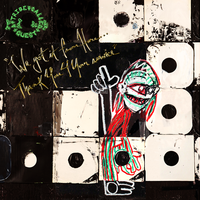











 1. Jamie xx - In Colour
1. Jamie xx - In Colour 1. Tame Impala - Let It Happen
1. Tame Impala - Let It Happen 1. Caribou - Our Love
1. Caribou - Our Love 1. Future Islands - Seasons (Waiting on You)
1. Future Islands - Seasons (Waiting on You) 1. Kanye West - Yeezus
1. Kanye West - Yeezus 1. Daft Punk - Get Lucky
1. Daft Punk - Get Lucky 1. Tame Impala - Lonerism
1. Tame Impala - Lonerism 1. Grimes - Oblivion
1. Grimes - Oblivion 1. PJ Harvey - Let England Shake
1. PJ Harvey - Let England Shake 1. Gil Scott Heron & Jamie xx - I'll Take Care of You
1. Gil Scott Heron & Jamie xx - I'll Take Care of You 1. KANYE WEST - My Beautiful Dark Twisted Fantasy
1. KANYE WEST - My Beautiful Dark Twisted Fantasy 1. LCD SOUNDSYSTEM - Dance Yrself Clean
1. LCD SOUNDSYSTEM - Dance Yrself Clean 1. ANIMAL COLLECTIVE – Merriweather Post Pavillion
1. ANIMAL COLLECTIVE – Merriweather Post Pavillion
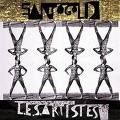
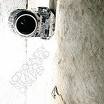 1. LCD SOUNDSYSTEM Sound of Silver
1. LCD SOUNDSYSTEM Sound of Silver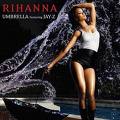 1. Rihanna – "Umbrella"
1. Rihanna – "Umbrella"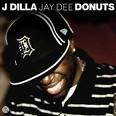 1. J DILLA Donuts
1. J DILLA Donuts 1. GNARLS BARKLEY "Crazy"
1. GNARLS BARKLEY "Crazy" 1. M.I.A. Arular
1. M.I.A. Arular 1. GORILLAZ "Feel Good Inc."
1. GORILLAZ "Feel Good Inc."
 1. FRANZ FERDINAND "Take Me Out"
1. FRANZ FERDINAND "Take Me Out"  1. THE WHITE STRIPES Elephant
1. THE WHITE STRIPES Elephant 1. OUTKAST "Hey Ya"
1. OUTKAST "Hey Ya" 1. THE STREETS Original Pirate Material
1. THE STREETS Original Pirate Material 1. THE WHITE STRIPES "Fell in Love with a Girl"
1. THE WHITE STRIPES "Fell in Love with a Girl" 1. Low Things We Lost in the Fire
1. Low Things We Lost in the Fire  1. Missy Elliott - Get Ur Freak On
1. Missy Elliott - Get Ur Freak On 1. GRANDADDY The Sophtware Slump
1. GRANDADDY The Sophtware Slump 1. Zombie Nation
1. Zombie Nation  1. The Magnetic Fields 69 Love Songs
1. The Magnetic Fields 69 Love Songs

